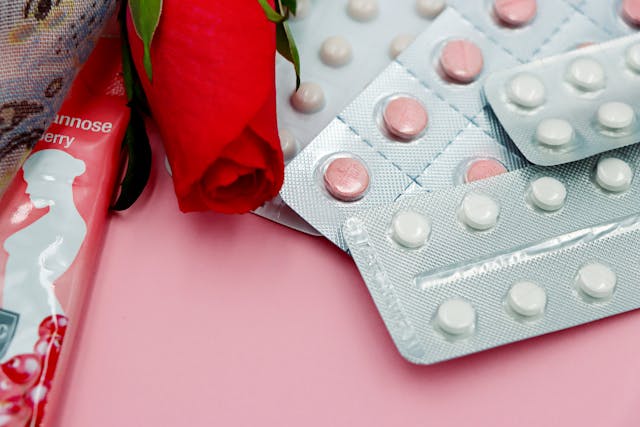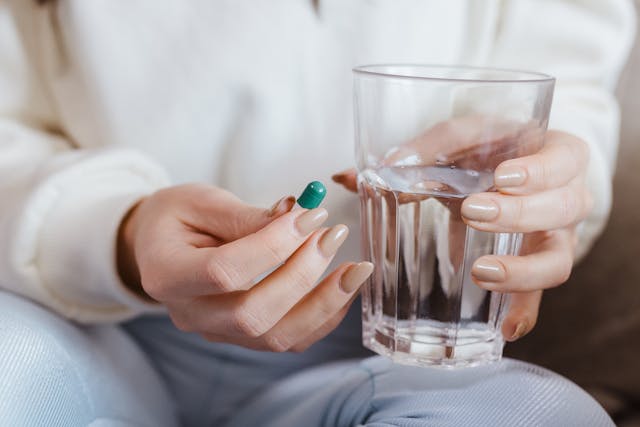
The gut-brain connection is a powerful two-way communication system that links your gut and brain, influencing your mental, physical, and emotional well-being. A disrupted gut-brain connection can lead to issues like anxiety, depression, digestive disorders, and even chronic inflammation. Fortunately, there are effective treatments and strategies to restore balance and heal your “second brain.”
In this detailed guide, we’ll explore what the gut-brain connection is, how imbalances occur, and the best treatments available to improve it.
What is the Gut-Brain Connection?
The gut and brain communicate through a network of nerves, hormones, and neurotransmitters. This connection is called the gut-brain axis, and it’s responsible for sending signals back and forth between your gastrointestinal system and your central nervous system.
Key players in the gut-brain connection include:
- The vagus nerve, which carries signals between the gut and brain.
- The gut microbiome, the trillions of bacteria in your digestive tract that influence brain health.
- Neurotransmitters like serotonin and dopamine, many of which are produced in the gut.
When this connection is disrupted, it can lead to issues like irritable bowel syndrome (IBS), anxiety, depression, and even neurodegenerative diseases.
Symptoms of a Disrupted Gut-Brain Connection
If your gut-brain connection is out of balance, you might experience:
- Digestive problems: Bloating, diarrhea, constipation, or IBS.
- Mood disorders: Anxiety, depression, irritability, or brain fog.
- Sleep disturbances: Difficulty falling or staying asleep.
- Fatigue: Chronic tiredness or low energy levels.
- Food sensitivities: Reactions to certain foods or an intolerance to gluten or dairy.
If these symptoms sound familiar, it’s important to address the root cause through targeted treatments.
Gut-Brain Connection Treatment Options
Treating the gut-brain connection requires a holistic approach that addresses both physical and mental health. Below are some effective strategies and treatments:
1. Improve Your Gut Microbiome
The gut microbiome—the trillions of bacteria, fungi, and viruses in your digestive tract—plays a key role in the gut-brain connection. A balanced microbiome promotes mental clarity, emotional stability, and optimal digestion.
How to Improve Your Microbiome:
- Probiotics: Take supplements or eat fermented foods like yogurt, kefir, kimchi, sauerkraut, and miso to introduce healthy bacteria into your gut.
- Prebiotics: Consume foods like garlic, onions, bananas, and asparagus to feed beneficial bacteria.
- Reduce Processed Foods: Cut back on sugar, artificial sweeteners, and processed foods that disrupt gut bacteria.
- Eat a Fiber-Rich Diet: Whole grains, fruits, and vegetables help maintain gut health.
2. Manage Stress
Chronic stress is a major disruptor of the gut-brain connection. Stress activates the fight-or-flight response, which can slow digestion, alter gut bacteria, and increase inflammation.
Stress-Reduction Techniques:
- Mindfulness Meditation: Regular meditation calms the vagus nerve and improves gut-brain communication.
- Deep Breathing Exercises: Slow, deep breaths activate the parasympathetic nervous system, promoting relaxation.
- Yoga and Tai Chi: These mind-body exercises reduce stress and enhance overall well-being.
- Therapy: Cognitive-behavioral therapy (CBT) and other forms of counseling can help manage chronic stress.
3. Eat for Gut-Brain Health
Your diet directly impacts your gut and, consequently, your brain. Making strategic changes to your eating habits can help heal the gut-brain axis.
Gut-Brain Healing Diet Tips:
- Anti-Inflammatory Foods: Incorporate foods like fatty fish, leafy greens, and berries to reduce inflammation.
- Omega-3 Fatty Acids: Found in fish, flaxseeds, and walnuts, omega-3s support brain function and reduce gut inflammation.
- Limit Trigger Foods: Identify and avoid foods that cause discomfort, such as gluten, dairy, or high-fat meals.
- Stay Hydrated: Proper hydration supports digestion and nutrient absorption.
4. Strengthen the Vagus Nerve
The vagus nerve is the primary communication pathway between your gut and brain. Strengthening its function improves the gut-brain connection.
Ways to Stimulate the Vagus Nerve:
- Cold Exposure: Splash your face with cold water or take a cold shower to activate the vagus nerve.
- Humming or Chanting: Activities like singing stimulate the vagus nerve through vibration.
- Regular Exercise: Physical activity enhances vagus nerve activity and reduces stress.
5. Use Targeted Supplements
Certain supplements can address imbalances in the gut-brain axis and support overall health.
Beneficial Supplements:
- Probiotics: Support a healthy microbiome and improve digestion.
- Prebiotics: Promote the growth of good bacteria in your gut.
- L-Glutamine: Helps repair the intestinal lining.
- Magnesium: Calms the nervous system and aids in stress management.
- Adaptogens: Herbs like ashwagandha and rhodiola support the body’s stress response.
6. Improve Sleep Hygiene
Poor sleep negatively impacts both gut health and brain function. Quality sleep is essential for maintaining a healthy gut-brain connection.
Tips for Better Sleep:
- Maintain a consistent sleep schedule.
- Avoid caffeine or heavy meals before bedtime.
- Create a relaxing bedtime routine, such as reading or meditating.
- Ensure your sleep environment is dark, quiet, and comfortable.
7. Address Mental Health
The gut-brain connection means that treating mental health issues can improve gut health, and vice versa. Therapies that address emotional well-being can be particularly effective.
Mental Health Treatments:
- Therapy: Counseling or psychotherapy can help address underlying emotional issues.
- Mindfulness Practices: Mind-body techniques improve mental clarity and emotional stability.
- Medication: In some cases, antidepressants or anti-anxiety medications may be recommended by a healthcare professional.
Integrative Treatments for the Gut-Brain Axis
Combining several treatments is often the most effective way to restore balance to the gut-brain connection. For example:
- Pair dietary changes with stress-reduction techniques for comprehensive healing.
- Use probiotics and prebiotics alongside therapy to address both physical and emotional health.
- Practice regular exercise to support vagus nerve stimulation and boost your mood.
When to Seek Professional Help
If you’re experiencing chronic gut issues, persistent anxiety, or depression, it’s essential to consult with a healthcare professional. A doctor or nutritionist can help identify the root cause of your symptoms and recommend a personalized treatment plan.
Key Takeaways
- The gut-brain connection is a vital communication system that affects digestion, mood, and overall health.
- Disruptions in this connection can lead to issues like anxiety, depression, and digestive disorders.
- Effective treatments include dietary changes, stress management, vagus nerve stimulation, and targeted supplements.
- An integrative approach that addresses both mental and physical health is key to healing the gut-brain axis.
Final Thoughts
Healing the gut-brain connection is not a one-size-fits-all approach. It requires a combination of lifestyle changes, dietary adjustments, and stress management techniques. By focusing on both your gut and brain, you can restore balance, improve your overall health, and enhance your quality of life.
Start by making small, intentional changes today, and you’ll soon feel the difference in both your body and mind. Your gut—and your brain—will thank you.

